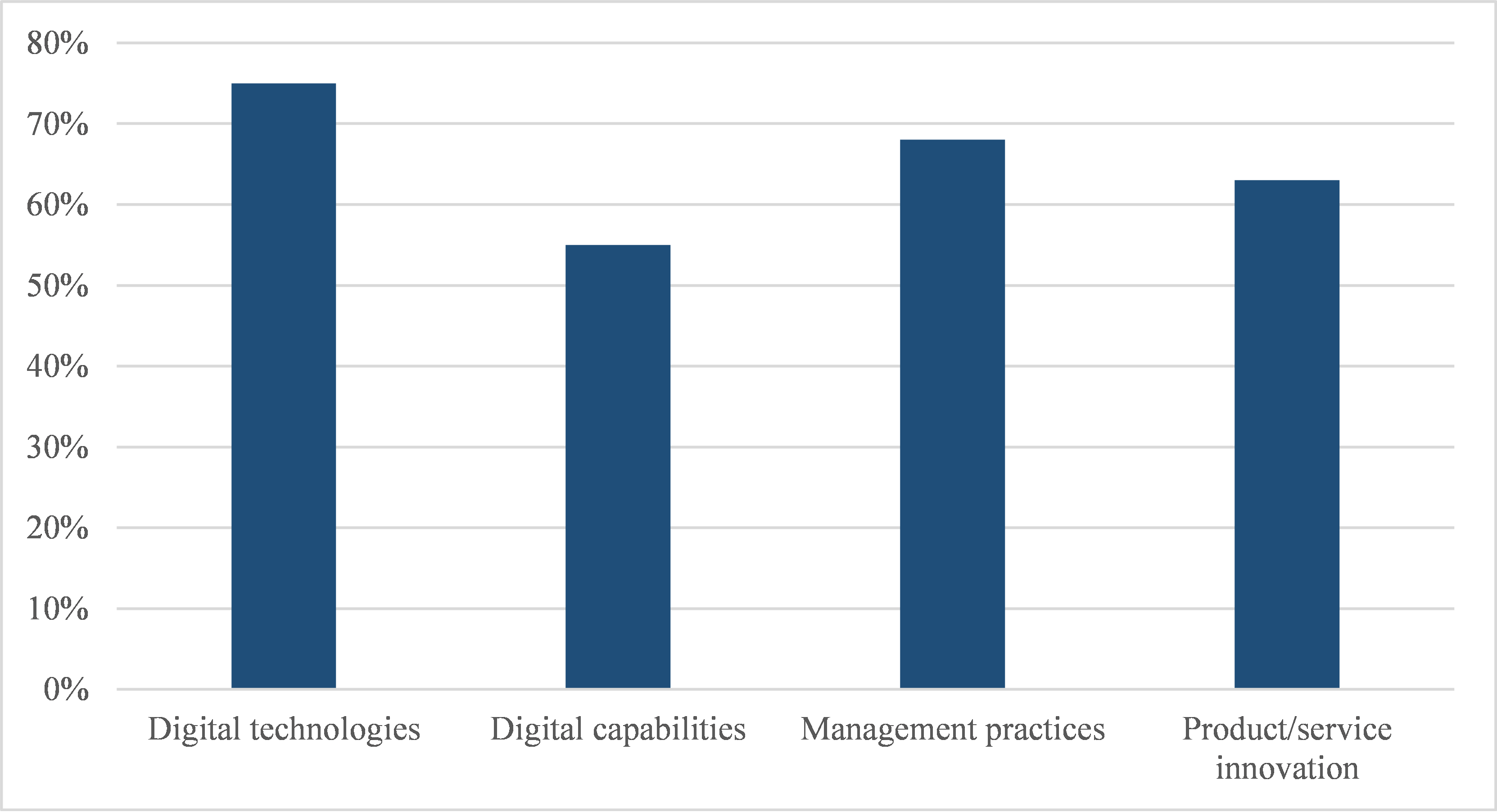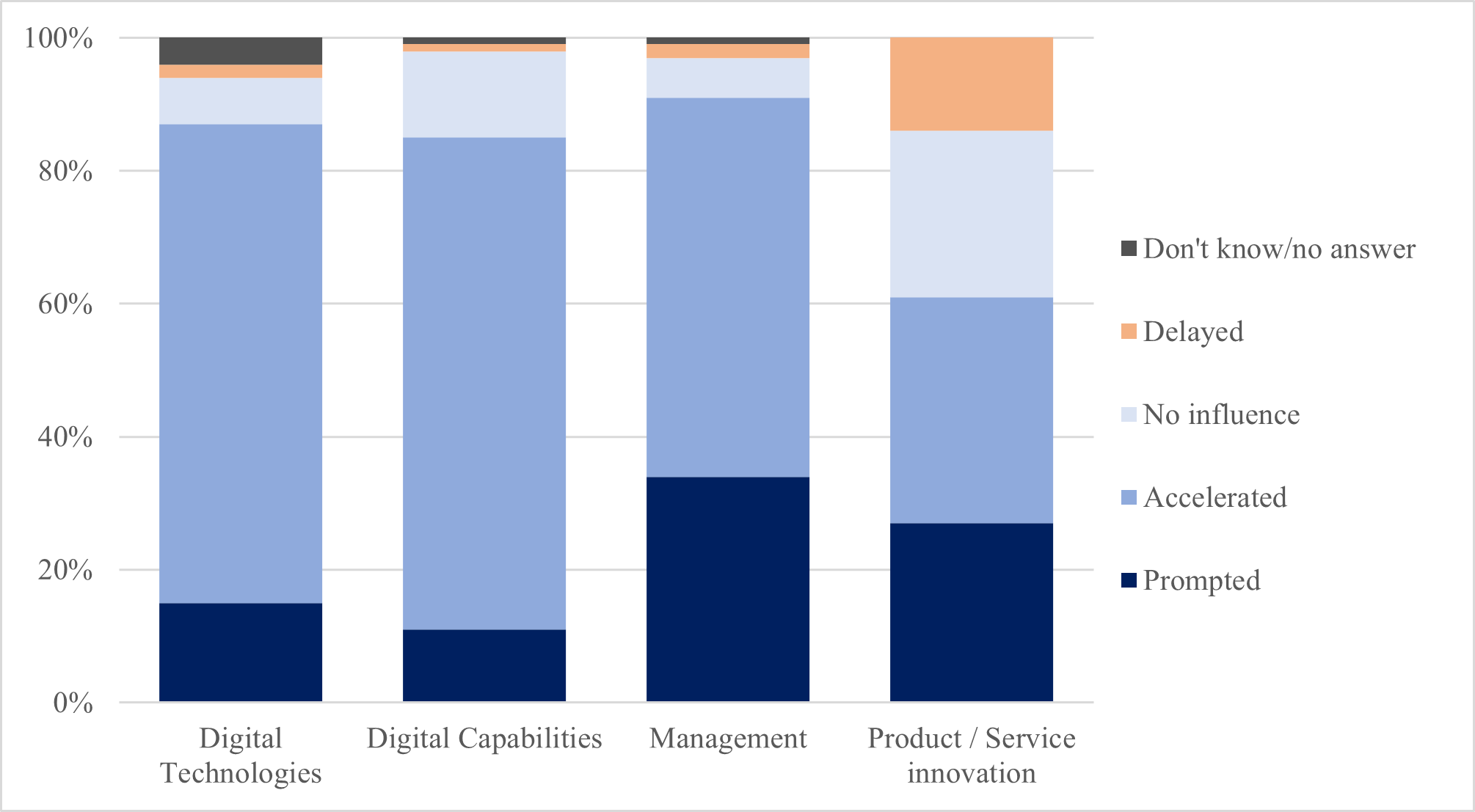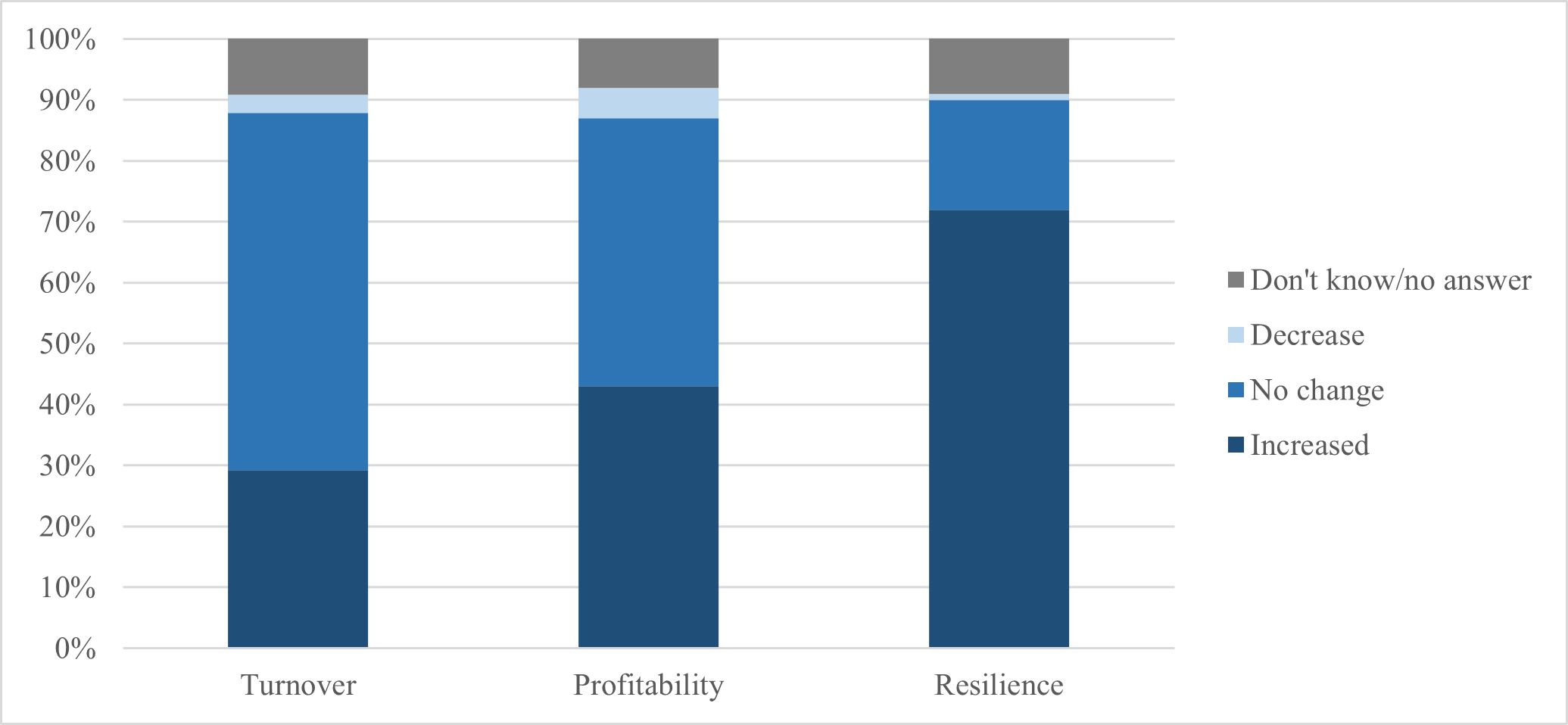The pandemic spurred three-quarters of firms to adopt new technologies, and businesses are keen to continue with this innovation mindset, which could be harnessed to fulfil the UK’s net zero commitments. Anna Valero, Capucine Riom and Juliana Oliveira Cunha find that the innovation response was stronger among larger and more digitised firms, potentially creating a lasting impact on the UK’s digital divide.
The pandemic was a harrowing blow to businesses, with 72% of firms relying on government support to survive through lockdowns, according to a survey we carried out with the Confederation of British Industry (CBI) which has been published by the Centre for Economic Performance (CEP). But the survey of 425 firms also shows high levels of innovation levels in response to the crisis, and the majority of firms report positive or neutral impacts of these innovations on businesses and workers.
We found that 75% of firms in our survey had adopted productivity-enhancing technologies since the start of the pandemic (Figure 1). Unsurprisingly, technologies for remote working were the most frequently adopted, either alone or in conjunction with other technologies, including online sales, cloud, data analytics and cyber security. But not all innovations were related to the adoption of new technologies. Firms also report high innovation levels in management practices and in the introduction of new products and services. Moreover, while a lot of the adoption of digital technologies and management practices occurred early on, a large share of firms continued to innovate beyond the initial lockdowns. In contrast, the share of firms adopting new digital capabilities was constant, while product innovation increased.
Figure 1. Overall innovation response to Covid-19

Notes: N=425, N=393, N=388, N=376 responded to each question, respectively.
Did the pandemic simply bring forward innovation that was already on the cards, or prompt firms to innovate in ways that were not planned before the pandemic? Most firms consider that the pandemic accelerated innovation plans, but between 11% and 34% firms (across innovation type) report that the pandemic prompted them to innovate (Figure 2).
Figure 2. Influence of COVID-19 on innovation

Notes: N=319, N=216, N=267, N=238 (Firms that innovated).
We might worry that these reactive innovations might be temporary, and if so, have limited effects on long term productivity and business performance. At this point, firms expect that these innovations will outlast the pandemic. Moreover, adopting firms consider that their experience during the pandemic has accelerated future plans. These findings suggest that COVID-19 is building the innovative capacity of businesses.
We also asked a series of questions to determine how technology adoption has affected business performance and impacted workers. The majority report either no impacts so far, or a positive impact. Indeed, most adopting firms say that these technologies have had no impact on turnover (Figure 3), but around a quarter report a positive impact. Interestingly, a larger share report positive impacts on profits, which suggests that for some firms, benefits might relate more to cost-saving measures. The majority (more than 70%) of adopters consider that new technologies have increased resilience.
Figure 3. Impacts of digital technology on business performance

Notes: N=319 (Adopters).
While these patterns give cause for optimism with respect to moving businesses on a more innovative path, we also find evidence that technology adoption, as well as its self-reported impacts, have been uneven across different types of firms. In line with our first wave survey, we find that larger firms and those that had adopted new digital technologies pre-pandemic are more likely to have adopted new technologies since March 2020.
Impacts of technologies on firms have also been uneven. For example, firms that had adopted new digital technologies prior to the pandemic were more likely to report increased resilience and worker productivity as a result of new technologies adopted since March 2020, but smaller firms were less likely to report an increase in resilience. This evidence suggests that while there has been an increase in process and product innovation across the board, gaps in performance between more and less digitised firms might widen in the future.
In this context, what should be the focus of business support policies aimed at improving innovation and productivity? In terms of barriers to adoption, financing constraints continue to be important but concerns about a lack of skills and doubts about the applicability of technology have risen in prominence since our survey last year. This perhaps reflects wider skills shortages, and the fact that businesses have moved further along their technology adoption journey. As in our first wave survey, new tax incentives and business grants or vouchers continue to be the top-ranked policies to address barriers to process innovation, with smaller firms prioritising the latter as well as improvements in telecommunication infrastructure. Larger firms highlight the importance of investments in the digital and professional skills of younger people entering the workforce. Policy priorities are similar with respect to product innovation.
In this decisive decade, UK businesses are facing the triple challenges of COVID, Brexit and the transition to net-zero greenhouse gas emissions. In fact, firms in our survey report taking environmental sustainability into account in technology adoption and broader organisational decision-making. This presents an opportunity for a joined-up approach to business support policies in the context of a sustainable recovery from Covid-19, by facilitating green innovation in the form of “green” public grants, vouchers or tax incentives.
♣♣♣
Notes:
- This blog post is based on The business response to Covid-19 one year on: findings from the second wave of the CEP-CBI survey on technology adoption, Paper Number CEPCOVID-19-024 of LSE’s Centre for Economic Performance (CEP).
- The post represents the views of its author(s), not the position of LSE Business Review or the London School of Economics.
- Featured image by geralt, under a Pixabay licence
- When you leave a comment, you’re agreeing to our Comment Policy.






The impact of the COVID-19 pandemic on UK businesses cannot be overstated, especially in accelerating the adoption of new technologies. The necessity to adapt to remote work and changing consumer behaviors prompted a rapid shift towards digital solutions. From embracing virtual collaboration tools to enhancing online customer experiences, businesses across various sectors have swiftly integrated innovative technologies into their operations. This wave of adoption not only facilitated continuity during challenging times but also laid the groundwork for a more digitally resilient future, emphasizing the pivotal role of technology in driving forward the UK’s business landscape.”